 TAP 2017: Call for Papers
TAP 2017: Call for Papers

First Call for Papers
11th International Conference on Tests And Proofs (TAP 2017)
Marburg (Germany) | 19-20 July 2017 | http://www.seceng.de/tap2017
Part of STAF 2017 http://www.informatik.uni-marburg.de/staf2017/
Important Dates
- Abstract: 17 February 2017
- Paper: 24 February 2017
- Notification: 7 April 2017
- Camera-Ready Version: 21 April 2017
- Conference: 17-21 July 2017
Aim and Scope
The TAP conference promotes research in verification and formal methods that targets the interplay of proofs and testing: the advancement of techniques of each kind and their combination, with the ultimate goal of improving software and system dependability.
Research in verification has recently seen a steady convergence of heterogeneous techniques and a synergy between the traditionally distinct areas of testing (and dynamic analysis) and of proving (and static analysis). Formal techniques, such as model checking, that produce counterexamples when verification fails are a clear example of the duality of testing and proving. The combination of static techniques such as satisfiability modulo theory and predicate abstraction has provided means of proving correctness by complementing exhaustive enumeration testing-like techniques. More practically, testing supports the cost-effective debugging of complex models and formal specifications, and is applicable in conditions that are beyond the reach of formal techniques -- for example, components whose source code is not accessible. Testing and proving are increasingly seen as complementary rather than mutually exclusive techniques.
The TAP conference aims to promote research in the intersection of testing and proving by bringing together researchers and practitioners from both areas of verification.
Topics of Interest
TAP's scope encompasses many aspects of verification technology, including foundational work, tool development, and empirical research. Its topics of interest center around the connection between proofs (and other static techniques) and testing (and other dynamic techniques). Papers are solicited on, but not limited to, the following topics:
- Verification and analysis techniques combining proofs and tests
- Program proving with the aid of testing techniques
- Deductive techniques (theorem proving, model checking, symbolic execution, SMT solving, constraint logic programming, etc.) to support testing: generating testing inputs and oracles, supporting coverage criteria, and so on.
- Program analysis techniques combining static and dynamic analysis
- Specification inference by deductive and dynamic methods
- Testing and runtime analysis of formal specifications
- Model-based testing and verification
- Using model checking to generate test cases
- Testing of verification tools and environments
- Applications of testing and proving to new domains, such as security, configuration management, and language-based techniques
- Bridging the gap between concrete and symbolic reasoning techniques
- Innovative approaches to verification such as crowdsourcing and serious games
- Case studies, tool and framework descriptions, and experience reports about combining tests and proofs
Highlight Topics
In addition to TAP's general topics of interests, the 11th edition of TAP will feature two highlight topics on techniques, tools, and experience reports on
1. Testing and proving the correctness of security properties and implementations of cryptographic functions and protocols with a focus on the successful interplay of tests and proofs, and
2. Asserting the correct functioning and testing of verification tools, especially on theorem provers, that form the basis of many verification results for tools and applications our society increasingly depends on.
Submission Instructions
TAP 2017 accepts papers of three kinds:
- Regular research papers: full submissions describing original research, of up to 16 pages (excluding references).
- Tool demonstration papers: submissions describing the design and implementation of an analysis/verification tool or framework, of up to 8 pages (excluding references). The tool/framework described in a tool demonstration paper should be available for public use.
- Short papers: submissions describing preliminary findings, proofs of concepts, and exploratory studies, of up to 6 pages (excluding references).
Organization
Program Chairs
- Einar Broch Johnsen
- Sebastian Gabmeyer
Program Committee
- Bernhard K. Aichernig
- Elvira Albert
- Bruno Blanchette
- Jasmin C. Blanchette
- Achim D. Brucker
- Catherine Dubois
- Gordon Fraser
- Carlo A. Furia
- Sebastian Gabmeyer (chair)
- Angelo Gargantini
- Alain Giorgetti
- Christoph Gladisch
- Martin Gogolla
- Arnaud Gotlieb
- Marieke Huisman
- Bart Jacobs
- Einar Broch Johnsen (chair)
- Nikolai Kosmatov
- Laura Kovacs
- Martin Leuker
- Panagiotis Manolios
- Karl Meinke
- Andreas Podelski
- Andrew J. Reynolds
- Martina Seidl
- Martin Steffen
- Martin Strecker
- T. H. Tse
- Luca Vigano
- Burkhart Wolff
- Stijn de Gouw
Contact
tap2017@easychair.org


